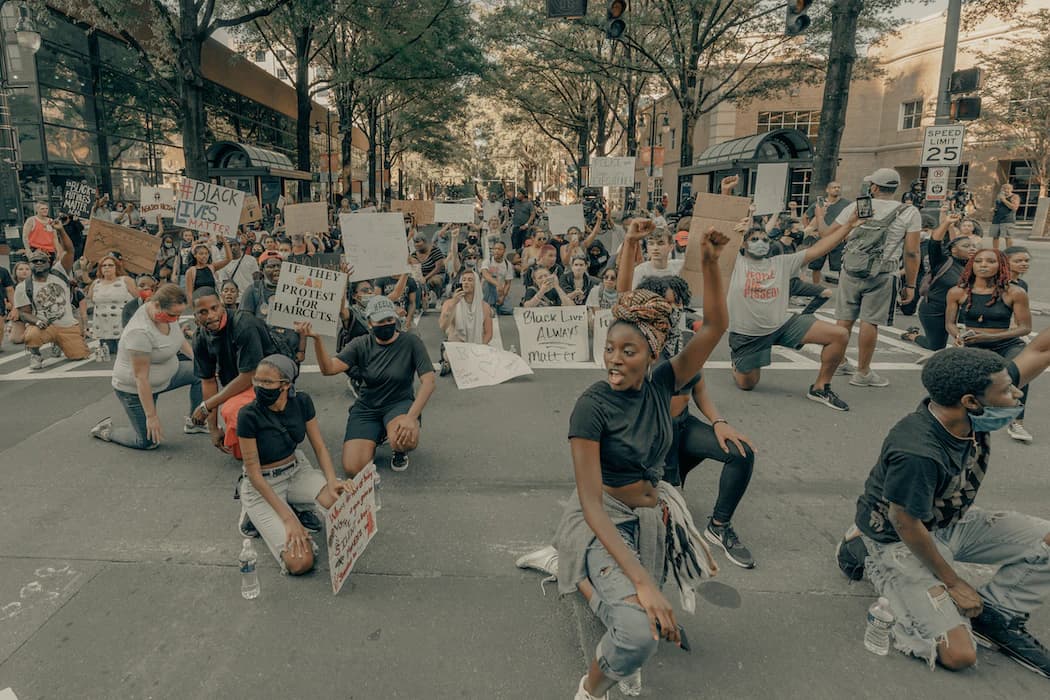
Why is being “not racist” not enough?
The Push for Active Change
Yes, you have read properly, not being racist is not enough, it’s not the endgame. To reach a point where racial discrimination is eliminated we will have to manage to end our unconscious biases.
Hold on, it has nothing to do with the unconscious in Freud, it has to do with the institutional and structural issues that uphold white privilege that contribute to racist behaviours, attitudes, and, most problematic policies.
Besides not being racist is the first step, since there are still policies and social biases that exclude and hinder people's access to their rights based on colour, it is time to grab your non-racist perspective and embrace an anti-racist approach. And we are here to help you get there, come with us.
Blurred past
It can be hard at times to see the social biases and structural racism that get in the way of a racism-free reality if we do not know our history well. For that, as Queen B says “Now let’s get information”, we have to face the sad and shameful impact of the existence of slavery in our history, because most of the racial discrimination that still goes on streams from there.
As the United Kingdom’s social history has been ethnically diverse since Roman domain times and migration throughout the continent has been a constant, the enslavement of black people can be missed within its history pages overall because the anti-racism movement in the Americas, for example, be more traditionally on the spotlight for its exponentials such as Martin Luther King Jr.
Another aspect well pointed out by The Guardian’s article “The history of British slave ownership has been buried” is that the British’s part in the enslavement can pass unnoticed precisely because it was mostly practised – on embodied meaning – in its colonies rather than in its territory which makes it hard to track it down to its current societal impacts.
However, as Trinidadian scholar Eric Williams states in his book “Capitalism and Slavery”, the British industrial revolution and its metropolitan economy were able to grow the way they have over the profits made from slavery.
For that, the way black people were socially placed under these commercial and colonial dynamics still holds consequences in our legal, social, and economic dynamics of today. Just check the data ahead.
Racial discrimination in data
Robin Balckburn’s article “Enslavement and Industrialisation” for BBC argues that “the idea of inherited guilt is wrong-headed - we are not responsible for our forebears' crimes and misdeeds - the idea of inherited privilege is perfectly valid. Britain got off to a good start at the time of the Industrial Revolution, and Britons today still enjoy a consequent afterglow of prosperity.”
So, if there is inherited privilege might as well be an inherited disadvantage, right? Let’s check this, shall we? And probably no one has said it better than Martin Luther King Jr. himself: https://www.youtube.com/watch?v=3xD8vWQJEok&t=43s
Now, this socioeconomic disadvantage black people were forced upon by non-strategical and biassed measures throughout the decades after the abolition of slavery show is the form of:
- Economic disparities:
• White households are on average 13 times wealthier than Black households.6 (Pew Research Center. Demographic trends and economic well-being.)
• One 2016 report found that while 72% of White households owned their home, only 44% of Black households and 45% of Latino households owned their homes.7 (Inequality.org. Racial Economic Inequality.)
• Black bachelor’s degree-holders earn significantly less than White bachelor's degree holders.8 (Wilson V. African Americans are paid less than whites at every education level. Economic Policy Institute.)
• According to data from the Bureau of Labor Statistics, in 2021 the median pay for White workers was about 23% higher than it was for Black and Latino workers.9 (U.S. Bureau of Labor Statistics. Table 2. Median usual weekly earnings of full-time wage and salary workers by selected characteristics, quarterly averages, not seasonally adjusted.)
- Employment Inequality
This report made in 2019 shows that ethnic minorities are less likely to be offered jobs compared to their White counterparts. Black workers are twice as likely to be unemployed as White workers. Statistics also show that Black employees are more likely to be underemployed in comparison to their educational and skill levels.
- Incarceration Disparities
Statistics from the Ministry of Justice show that there are significant disparities in how the criminal justice and legal system treat White vs. non-White defendants. People who belong to an ethnic minority receive longer, harsher sentences. For example, Black men receive almost 20% longer sentences than White defendants for the same crimes.
now-u are geared up to take action
Ok, you are not responsible for things that happened in the past, we know. But how things will keep on being from here onwards lies in all of our hands. If you are not racist, take a step further and engage in being anti-racist to build a more equitable society.
How can you do it, you ask?
The first step can be quite easy actually, to seek diversity. Only by knowing people from different realities you are going to challenge your worldview and gain a new perspective on how people experience and are impacted by white supremacy. Scholars at Princeton University found that simply living in areas with greater diversity causes people to be less racist and more tolerant.
Another, and more importantly, participate – by voting critically – on the creation and support of policies and practices within political and work institutions that help close the gap of access to opportunities for people of colour.
Finally, download the now-u app and get in touch with more information and initiatives that are building ongoing efforts to end racism and start participating in change now.
Larissa Farias

